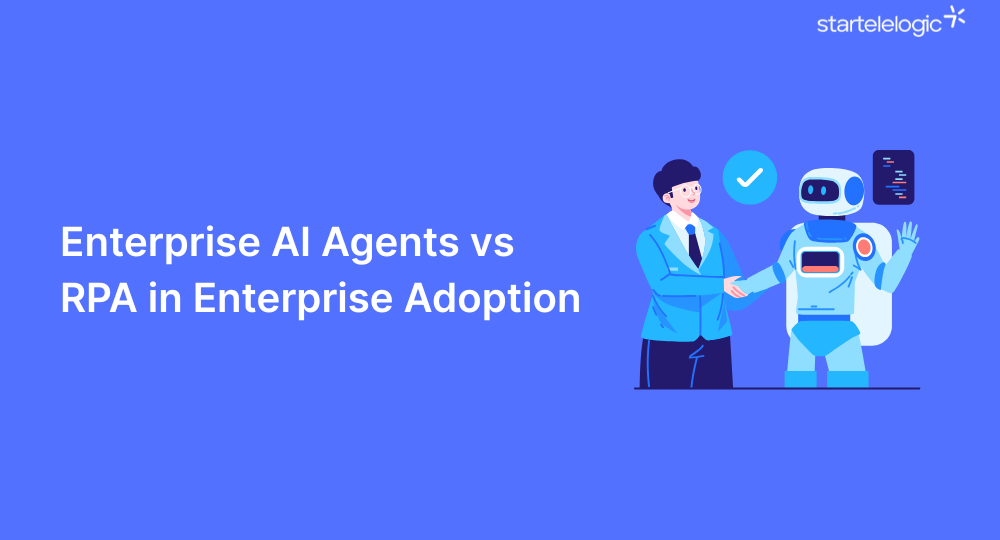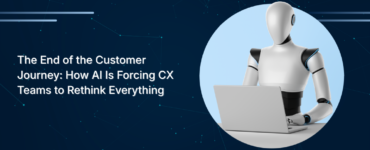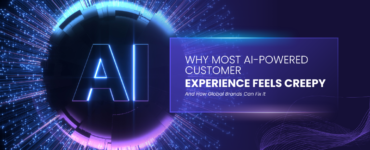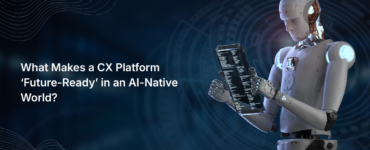The global market for Robotic Process Automation (RPA) was valued at $2.4 billion in 2022 and is projected to grow at a compound annual growth rate (CAGR) of 32.8% from 2023 to 2030, according to Grand View Research. Meanwhile, the enterprise AI market, which includes AI agents, is expected to reach $118.6 billion by 2025, as per IDC. These staggering figures highlight the rapid adoption of automation technologies in enterprises worldwide. However, with the rise of Enterprise AI Agents vs RPA, businesses are often left wondering which technology is better suited to their needs. While both aim to streamline operations and enhance efficiency, they differ significantly in their capabilities, use cases, and long-term impact on enterprise processes. In this article, we’ll dive deep into the nuances of these two transformative technologies, explore real-world applications, and provide actionable insights to help enterprises make informed decisions.
Understanding RPA: The Foundation of Automation
Robotic Process Automation (RPA) has been a cornerstone of enterprise automation for over a decade. At its core, RPA focuses on automating repetitive, rule-based tasks by mimicking human actions within digital systems. For instance, RPA bots can handle data entry, invoice processing, or even customer service queries that follow a predefined workflow.
What makes RPA appealing is its simplicity and quick implementation. Enterprises can deploy RPA solutions without requiring extensive changes to their existing IT infrastructure. According to Deloitte, approximately 53% of organizations have already started their RPA journey, citing cost reduction and improved accuracy as primary drivers. A typical RPA implementation can reduce operational costs by up to 30%, making it an attractive option for businesses looking to optimize their back-office functions.
However, RPA has its limitations. It struggles with unstructured data, lacks decision-making capabilities, and cannot adapt to dynamic environments. For example, if a process involves interpreting handwritten notes, analyzing customer sentiment, or responding to unexpected changes in workflows, RPA falls short. This is where AI Agents come into play, offering a more sophisticated and intelligent approach to automation.
The Rise of Enterprise AI Agents: Intelligent Automation Redefined
AI Agents, powered by artificial intelligence and machine learning, represent the next evolution in enterprise automation. Unlike RPA, which operates on pre-defined rules, AI Agents leverage cognitive abilities to learn, reason, and make decisions autonomously. These agents can process unstructured data, interact with humans in natural language, and adapt to changing conditions in real-time.
For example, an AI Agent in customer service can analyze sentiment in a customer’s message, recommend personalized solutions, and escalate complex issues to human agents when necessary. Similarly, in supply chain management, AI Agents can predict demand fluctuations, optimize inventory levels, and suggest alternative suppliers during disruptions. By integrating advanced analytics and predictive modeling, AI Agents empower enterprises to move beyond mere task automation and achieve true process optimization.
A report by McKinsey estimates that AI-driven automation could add up to $13 trillion to the global economy by 2030. This underscores the transformative potential of AI Agents in driving innovation and delivering value across industries. Enterprises adopting AI Agents gain a competitive edge through enhanced operational agility, deeper insights, and superior customer experiences. For instance, Coca-Cola implemented AI-powered chatbots to handle customer inquiries, resulting in a 40% reduction in response times and a significant improvement in customer satisfaction.
Key Differences Between RPA and AI Agents
When comparing Enterprise AI Agents vs RPA, several key distinctions emerge:
- Scope of Automation:
- RPA: Excels at automating specific, repetitive tasks but struggles with complex workflows involving judgment or variability.
- AI Agents: Can handle end-to-end processes, integrating multiple systems and making contextual decisions.
2. Data Handling:
- RPA: Works best with structured data and requires significant effort to process unstructured inputs like emails or images.
- AI Agents: Thrive on both structured and unstructured data, leveraging techniques such as natural language processing (NLP), computer vision, and speech recognition.
3. Adaptability:
- RPA: Bots need manual reprogramming to accommodate changes in processes or regulations.
- AI Agents: Continuously learn from new data and user interactions, enabling them to evolve without constant intervention.
4. Complexity and Cost:
- RPA: Offers a lower barrier to entry in terms of cost and technical expertise, making it ideal for small-scale projects.
- AI Agents: Involve higher upfront investment and specialized skills but deliver greater ROI over time due to their ability to scale and adapt.
5. Use Cases:
- RPA: Best suited for high-volume, low-complexity tasks such as payroll processing, claims handling, and order fulfillment.
- AI Agents: Ideal for scenarios requiring intelligence and flexibility, such as fraud detection, predictive maintenance, and personalized marketing.
Real-World Applications: RPA and AI Agents in Action
To better understand the practical implications of Enterprise AI Agents vs RPA, let’s examine some real-world examples:
Financial Services
- RPA: A leading bank deployed RPA bots to automate loan application processing. The bots extracted data from forms, verified documents, and updated records, reducing processing time by 70%.
- AI Agents: Another financial institution implemented AI Agents to detect fraudulent transactions. Using machine learning algorithms, the agents analyzed patterns in transaction data and flagged suspicious activities in real-time, preventing millions in potential losses.
Healthcare
- RPA: A hospital used RPA to streamline patient registration and billing processes. The bots automated data entry, appointment scheduling, and insurance verification, freeing up staff to focus on patient care.
- AI Agents: A healthcare provider introduced AI Agents to assist doctors in diagnosing diseases. By analyzing medical records, lab results, and imaging scans, the agents provided accurate diagnoses and treatment recommendations, improving patient outcomes.
Retail
- RPA: A retail chain employed RPA to manage inventory levels. The bots monitored stock movements, generated purchase orders, and updated inventory databases, ensuring shelves were always stocked.
- AI Agents: An e-commerce platform utilized AI Agents to personalize shopping experiences. The agents analyzed browsing behavior, purchase history, and social media activity to recommend products tailored to individual preferences, boosting conversion rates by 25%.
Choosing the Right Solution for Your Enterprise
The decision between Enterprise AI Agents vs RPA depends on your organization’s goals, challenges, and readiness for transformation. Here are some factors to consider:
- Business Objectives:
- If your primary goal is to reduce costs and improve efficiency in routine tasks, RPA is likely the right choice.
- If you’re aiming to innovate, gain deeper insights, and future-proof your operations, AI Agents are the way forward.
2. Technical Readiness:
- RPA implementations are relatively straightforward and don’t require extensive IT infrastructure changes.
- AI Agents demand robust data pipelines, advanced analytics platforms, and skilled personnel to design and maintain the systems.
3. Budget Constraints:
- RPA offers quicker returns on investment and lower initial costs.
- AI Agents involve higher upfront expenses but deliver exponential value over time through scalability and adaptability.
3. Hybrid Approach:
Many leading organizations are adopting a hybrid approach, combining the strengths of RPA and AI Agents. For instance, RPA can handle high-volume, low-complexity tasks, while AI Agents manage exceptions and provide strategic recommendations. This synergy enables enterprises to achieve comprehensive automation that balances cost-effectiveness with innovation.
Navigating the Future of Enterprise Automation
As the debate around Enterprise AI Agents vs RPA continues, one thing is clear: the future belongs to intelligent automation. While RPA laid the groundwork for digital transformation, AI Agents are poised to take it to the next level by infusing automation with intelligence, adaptability, and scalability.
To stay ahead in today’s competitive landscape, enterprises must evaluate their unique requirements and align their automation strategies accordingly. Whether you choose RPA, AI Agents, or a combination of both, the ultimate goal is to create a seamless, efficient, and resilient operation that drives sustainable growth.
By embracing the right mix of technologies, enterprises can move beyond the hype and harness the true power of automation to redefine how they work, compete, and succeed in the digital age. As Gartner predicts, by 2025, 70% of enterprises will have implemented some form of intelligent automation. The question isn’t whether to adopt automation—it’s how to do it effectively and strategically.




